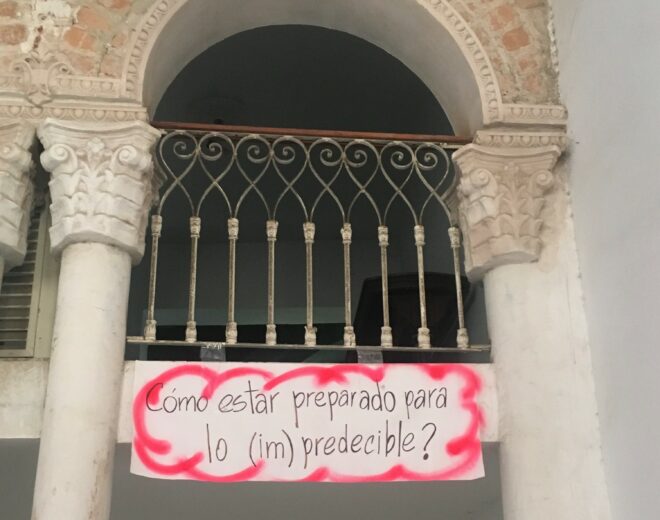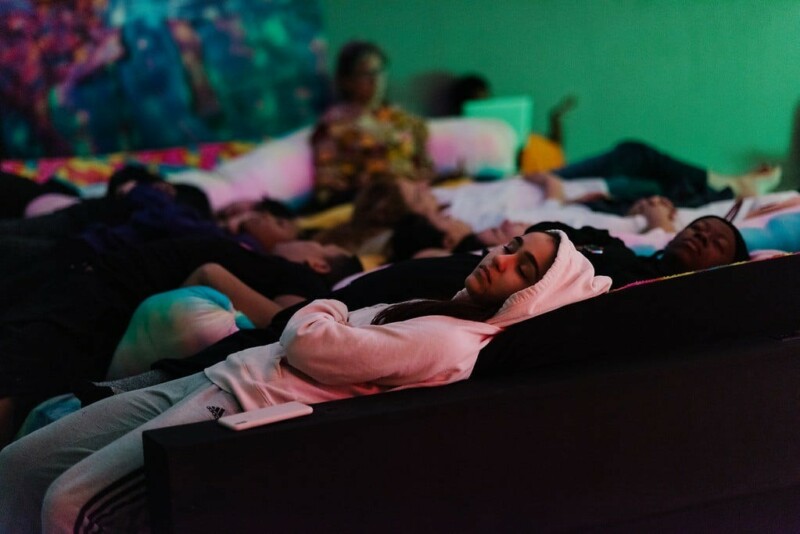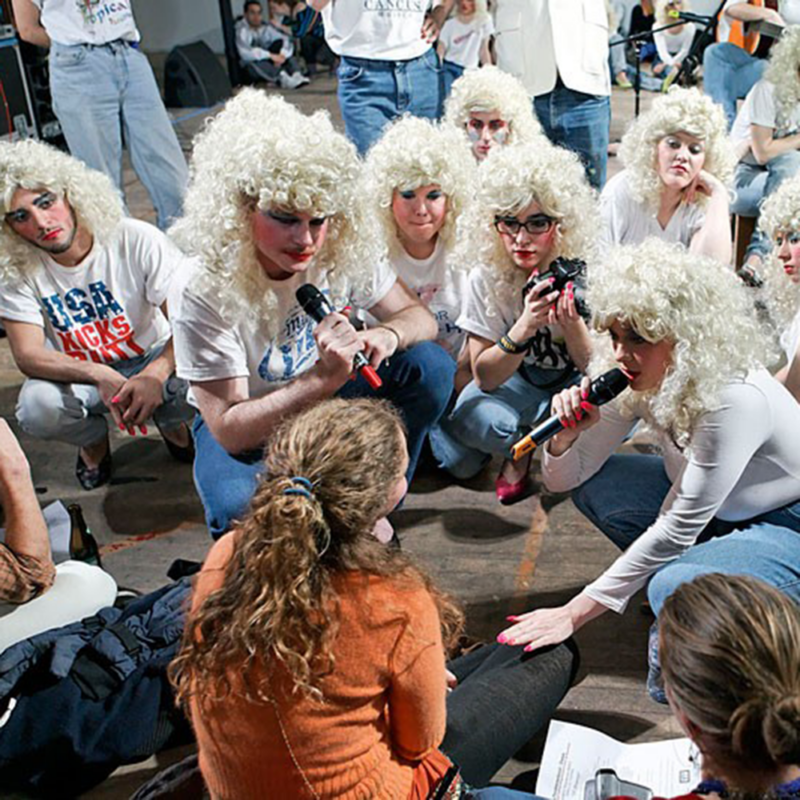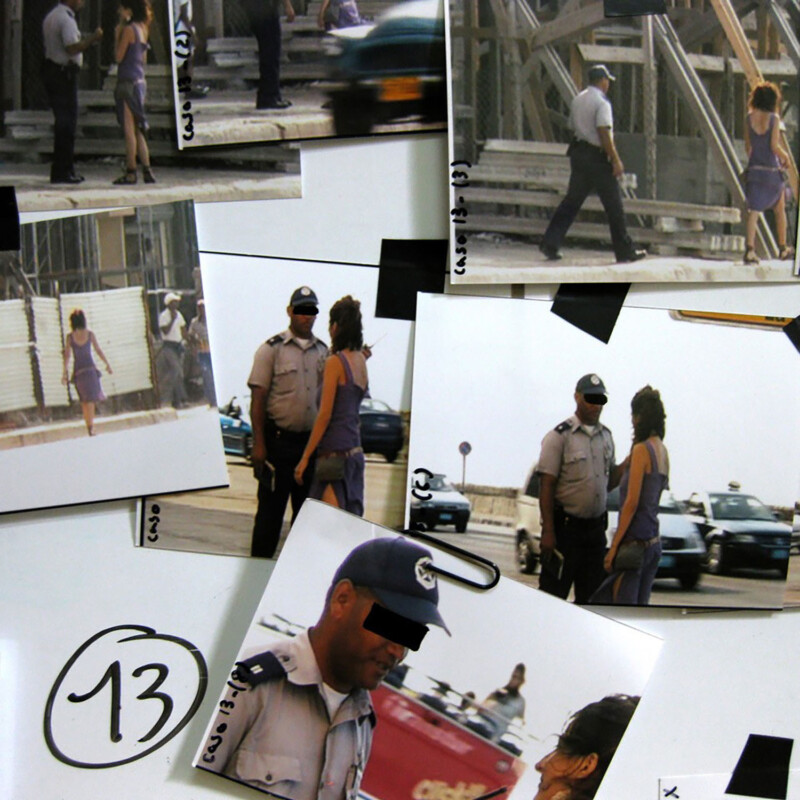Podcast
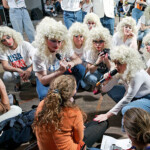
Artist and activist Tania Bruguera has always challenged her audience to become active participants not only in her work but also in society: Installations like “Whisper #6” (2009), a live microphone in the center of Havana, she offered moments of courage and self-empowerment by inviting the crowd to share freely their opinion within a heavily censored context. Performances like “Self Sabotage” (2009), where Bruguera played Russian Roulette in front of an audience which was forced into the role of witnesses, first unsure how to read and to judge the situation, finally intervening. Social initiatives like “Immigrant Movement International” (starting 2020) dropped the notion of visitors or audiences completely, initiating a political organization fighting for migrants’ rights in Queens. Lately Bruguera again shifted her approach towards spectators in her work turning to theatre as a medium, drawing from influences like Brecht or Boal.
Part of Episode XIV: “Audience as Allies, Witnesses, and Enemies”
With Claire Bishop, Tania Bruguera, Ann Liv Young & Florian Malzacher
17. March 2022 – Goethe Institut New York / USA
In collaboration with Goethe Institut: Performing Architecture
Biography
Tania Bruguera is a Cuban artist and activist whose work often considers totalitarianism, immigration, and human rights. Bruguera, who intended to raise awareness and expand cultural inclusion, defined her work as arte útil (useful art). Her work has been represented in leading collections of MoMA and Tate Modern among other places. In 2015 she founded the Institute of Artivism/Instituto de Artivismo Hannah Arendt (INSTAR) in order to “foster civic literacy and policy change.” In 2021 she agreed to leave Cuba to assume the position of senior lecturer in media and performance at Harvard University in exchange for the release of 25 political prisoners.
